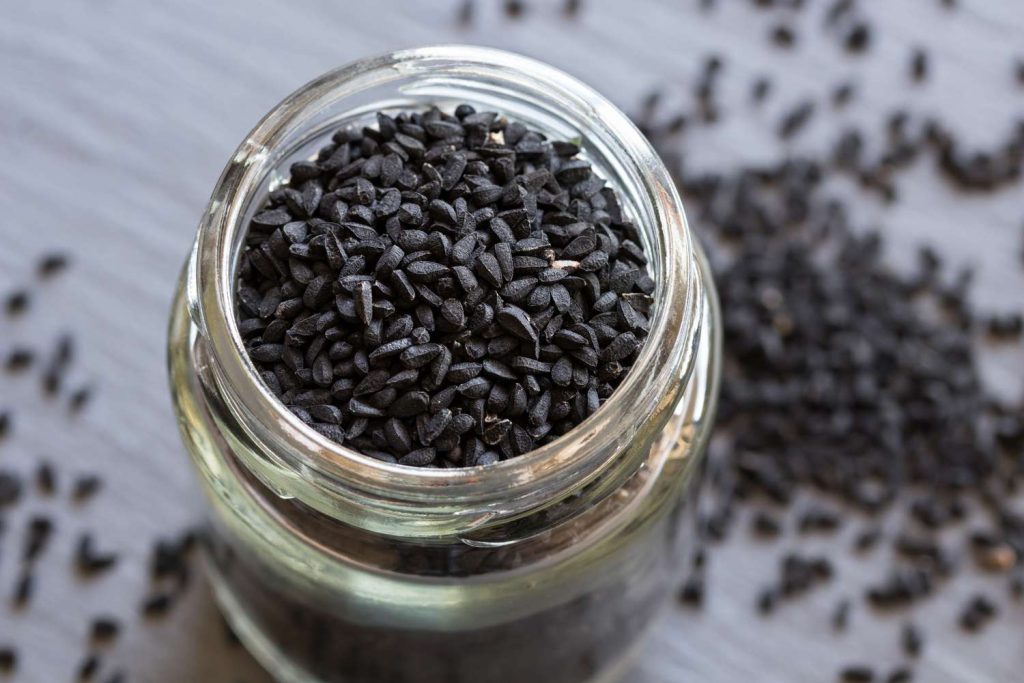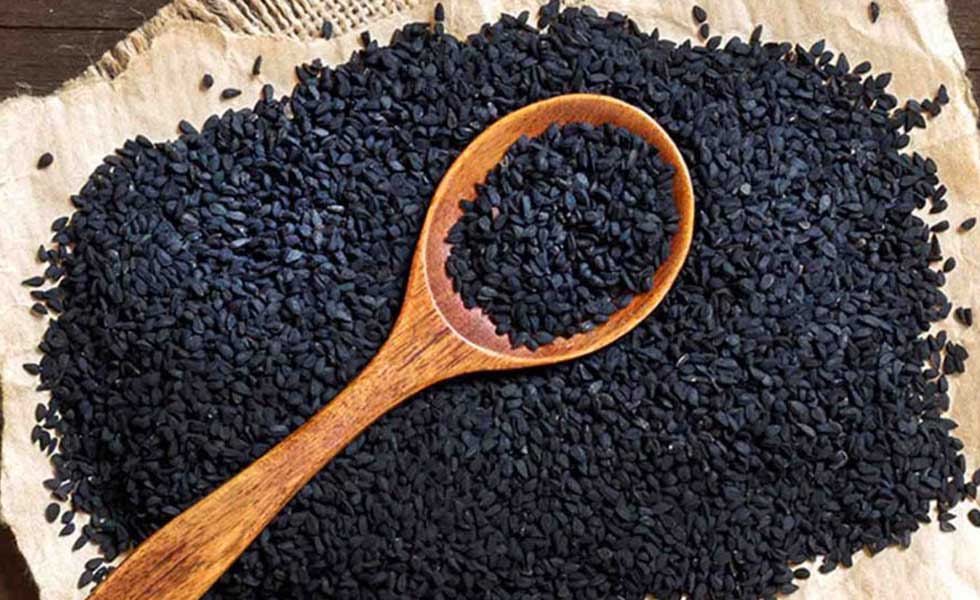Among the many herbs mentioned in ancient texts, one stands out for its enduring reputation: black cumin (Nigella sativa). Known as the “seed of blessing,” it has been celebrated for centuries across various cultures for its remarkable health benefits. From ancient Egyptian tombs to Islamic traditions, black cumin’s therapeutic properties have been acknowledged and revered.
Historical Significance
Black cumin’s legacy dates back over 3,000 years. It was discovered in the tomb of Pharaoh Tutankhamun, highlighting its esteemed status in ancient Egyptian society. In Islamic tradition, the Prophet Muhammad is reported to have said, “Use this black seed, for indeed it is a cure for every disease except death.”

Chemical Composition
The therapeutic effects of black cumin are attributed to its complex chemical composition, which includes over 100 distinct compounds. Key among these is thymoquinone, a potent antioxidant and anti-inflammatory agent. Additionally, black cumin contains essential fatty acids, alkaloids, and saponins, all contributing to its medicinal properties.
Health Benefits
Modern research has validated many of the traditional uses of black cumin. Some of its well-documented health benefits include:
- Immune System Support: Enhances the body’s defense mechanisms against infections.
- Anti-inflammatory Effects: Reduces inflammation, beneficial in conditions like arthritis.
- Antioxidant Properties: Protects cells from oxidative stress, potentially reducing the risk of chronic diseases.
- Digestive Health: Aids in digestion and alleviates symptoms of indigestion.
- Respiratory Relief: Helps in managing asthma and other respiratory issues.
- These benefits make black cumin a valuable addition to modern wellness practices.
Culinary Uses
Beyond its medicinal properties, black cumin is also used in culinary applications. Its mildly spicy flavor enhances a variety of dishes, from rice and pastries to cheeses, especially in Mediterranean and Middle Eastern cuisines. Incorporating black cumin into daily meals can be both flavorful and health-promoting.
Incorporating Black Cumin Into Daily Life
Black cumin is versatile, making it easy to include in a daily wellness routine. Beyond capsules and supplements, the seeds can be added to teas, smoothies, and salad dressings, offering both flavor and therapeutic benefits. Regular consumption may support overall health by boosting immunity, reducing inflammation, and improving digestion. Recent studies have also explored black cumin’s role in managing chronic conditions such as high blood pressure, diabetes, and metabolic syndrome. Its antioxidant properties help combat oxidative stress, a contributor to aging and disease progression. Scientists continue to investigate its potential in supporting cardiovascular health and cognitive function. For culinary enthusiasts, black cumin can elevate dishes while promoting well-being. Roasting seeds lightly before use enhances their aroma and taste. Integrating this ancient herb into daily life exemplifies a balance of tradition and modern health practices, proving that nature’s remedies remain relevant in contemporary wellness.

Conclusion
Black cumin (Nigella sativa) exemplifies the profound connection between nature and health. Its rich history, coupled with scientifically backed health benefits, underscores its status as a timeless herbal remedy. Whether used for its medicinal properties or as a culinary spice, black cumin continues to play a significant role in promoting well-being across cultures. Regular use may also improve mood, energy, and overall vitality

















